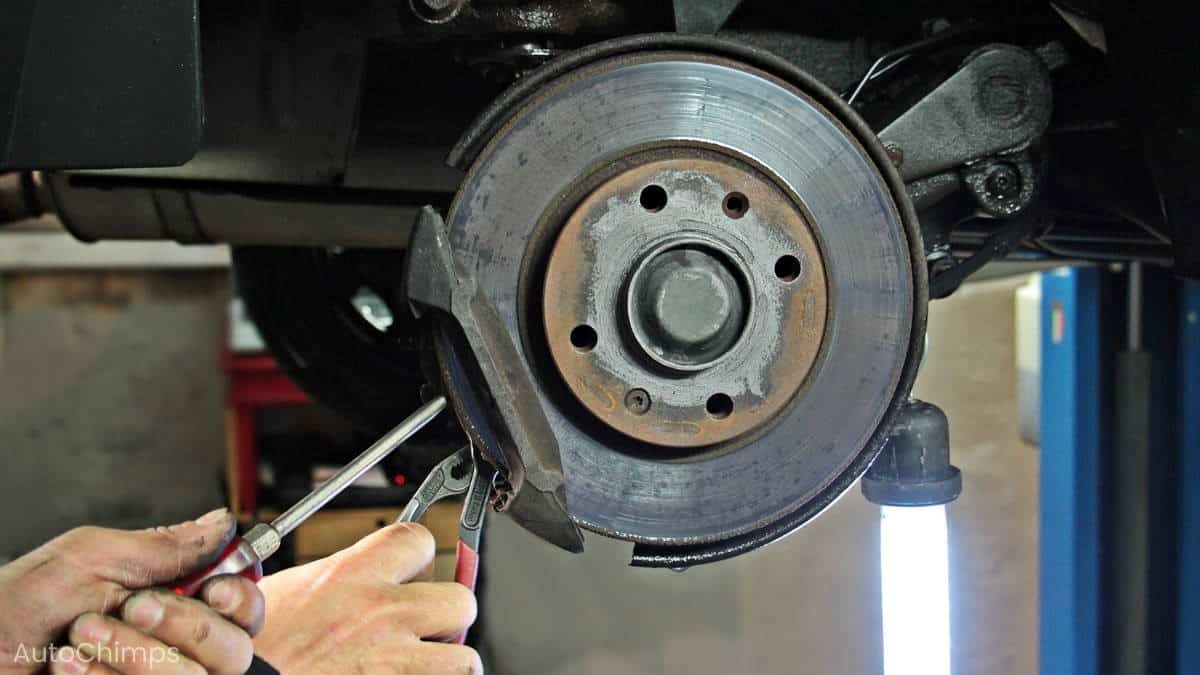Maintaining your vehicle's brakes is a crucial aspect of ensuring its safety and longevity. When it comes to replacing your brake pads, you want to make sure you choose the right type for your vehicle. In this guide, we're going to break down the different types of brake pads, their pros and cons, and how to choose the right ones for your vehicle.

Types of Brake Pads
There are three main types of brake pads on the market:
1. Ceramic Brake Pads:
Ceramic brake pads are composed of ceramic fibers, nonferrous fillers, and bonding agents. They're a popular choice among vehicle owners and manufacturers because they offer excellent stopping power and are quieter than other types of pads. However, they tend to be more expensive than other types of pads and can wear out faster.
2. Organic Brake Pads:
Organic brake pads are made of organic materials like rubber, glass, and carbon. They're an excellent choice for those who prioritize a quieter ride and minimal brake dust since they produce less dust than other types of pads. However, they may not offer the same stopping power as other types of pads and tend to wear out quicker.
3. Semi-Metallic Brake Pads:
Semi-metallic brake pads are composed of metallic fibers, fillers, and bonding agents. They offer excellent stopping power, making them a popular choice for high-performance vehicles. However, they tend to produce more noise and brake dust than other types of pads and can wear down the rotors faster.
Factors to Consider When Choosing Brake Pads
When choosing brake pads for your vehicle, there are several factors to consider, including:
1. Vehicle Type:
Different types of vehicles have different weight and braking system requirements, which can affect the type of brake pads needed. For example, a sports car may require a higher-performance brake pad than a standard sedan.
2. Driving Habits:
Your driving habits can also affect the type of brake pad you need. If you frequently drive in heavy traffic or stop-and-go conditions, you may need a pad with more stopping power. However, if you mostly drive on highways, you may not need as much stopping power.
3. Climate:
The climate in which you live can also affect your brake pads. For example, if you live in an area with steep hills or frequent rain or snow, you may need a pad with more stopping power to ensure safety.
4. Budget:
Brake pads can vary in price, with ceramic pads typically being the most expensive. Consider your budget when choosing brake pads, but keep in mind that investing in higher-quality pads can save you money in the long run by lasting longer and requiring less maintenance.
Conclusion
Maintaining your vehicle's brakes is essential for safety and longevity, and choosing the right brake pads is a crucial part of that maintenance. Consider your vehicle type, driving habits, climate, and budget when choosing brake pads, and consult with a professional if you're unsure which type to choose. Whether you opt for ceramic, organic, or semi-metallic pads, ensuring you choose the right type for your vehicle can make all the difference in your driving experience.